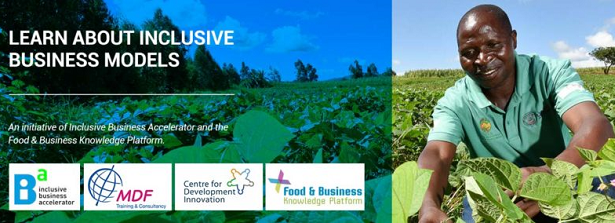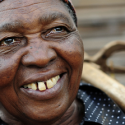Launch online course “Introduction to Inclusive Business”

The Food & Business Knowledge Platform has supported the development of the online course “Introduction to Inclusive Business”. The course is aligned to a number of existing activities done by MDF Training & Consultancy, Wageningen UR/CDI and the Inclusive Business Accelerator consortium. After the launch on June 6, 2016, the course will continuously be available on the IBA.ventures platform.
Inclusive business refers to sustainable business solutions that go beyond philanthropy and expand access to goods, services and livelihood opportunities for low-income communities in commercially viable ways.
Inclusive Business ventures deliver high socio-economic value by engaging the poor as producers, distributors, suppliers, or consumers, and present an exciting opportunity for the private sector because they are good for business. A variety of commercial returns–market entry, market share, secure supply chains, product line innovation, and competitive advantage–all help to build market value.
Target groups
Since this educational programme is positioned as a practical, introduction course on Inclusive Business, there are three main target groups:
- Entrepreneurs in developing countries who would like to diversify their business towards low-income communities;
- Staff of intermediary organisations working with local entrepreneurs, such as NGO’s or investors;
- Students in business related fields who would like to learn about the potential and practicalities of doing Inclusive Business.
Topics to cover
The participants in the online course will gain case-based knowledge and basic theory needed to dive into Inclusive Business and get inspired by following the “inclusive business” curriculum. The programme will tackle the following topics:
- Why inclusive business?
- Case studies: successful examples of ventures addressing the needs of people in low-income communities
- The do’s and don’ts of marketing at the Base of the Pyramid (BoP)
- The route to inclusiveness
- Develop your own inclusive business and revenue model
- Financing Inclusive Business
These topics will be addressed in 4 interrelated modules that you can follow at your own convenience.
Modules
- What is inclusive business and the BoP?: At the end of this first module, you will be able to: categorise different ways of integrating low-income groups into the core of your business, list the three general principles of your business’ inclusiveness, and distinguish your stakeholders’ general incentives for embracing inclusive business like Novos Horizontes in Mozambique.
- How to enhance inclusiveness of a business?: In this module, you will be able to analyse a business based on the framework of the New Business Model principles and recommend strategies to enhance the inclusiveness of a business like retailer Hariyali Kisaan Bazaar in India.
- Inclusive Business Models: In this module you will look at business modelling, value propositions and what kind of revenue models to use when doing inclusive business like the lease-to-own tactic used by the solar company M-KOPA in Kenya that enables its customers to pay-off their solar systems over the period of one year through small daily mobile payments.
- Marketing and distribution at the BoP: When finishing this fourth module, you will have identified the ATEAR elements of marketing at the BoP. You will define ways to: attract Attention, create Trust, enable Experience, trigger Action and ensure Retention of your customers. Likewise, this module will introduce you to three general BoP distribution strategies implemented for instance by the leading nutritional food processing Ethiopian company Guts Agro.






